
Loopz is a puzzle video game designed and programmed by Ian Upton for the Atari ST in 1989. He previously worked as head game designer for Audiogenic, who acquired exclusive rights to the game, then in 1990 arranged for Mindscape to publish it for computers in North America and consoles worldwide.
Artworx was a Naples, Florida software company that produced and supported a line of computer games from 1981 to 2015. It is named after the founder's given name. At first the company published a variety of games, including titles in adventure and arcade-action genres, but were later best known for a strip poker series.
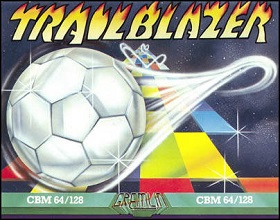
Trailblazer is a racing video game developed by Mr. Chip Software and published by Gremlin Graphics for the ZX Spectrum, Commodore 64, Atari 8-bit computers, Amstrad CPC, Commodore 16 and Plus/4 in 1986. It was ported to the Amiga and Atari ST.

Time Bandit is a maze shoot 'em up written for the TRS-80 Model I by Bill Dunlevy and Harry Lafnear and published by MichTron in 1983. It was ported to the TRS-80 Color Computer and Dragon 32, but enjoyed its greatest popularity several years later as an early release for the Atari ST. It was also released for the pseudo-PC-compatible Sanyo MBC-55x with 8-color display. Amiga and MS-DOS versions were ported by Timothy Purves.

Hard Nova is a role-playing video game developed by Malibu Interactive and published by Electronic Arts in 1990 for DOS, Amiga and Atari ST. It is a follow-up to Sentinel Worlds I: Future Magic.
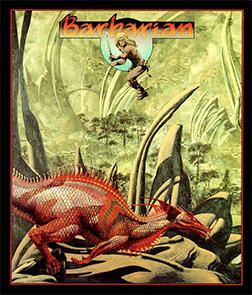
Barbarian is a 1987 platform game by Psygnosis. It was first developed for the Atari ST, and was ported to the Amiga, Commodore 64, MS-DOS, MSX, Amstrad CPC, and ZX Spectrum. The Amiga port was released in 1987; the others were released in 1988. The cover artwork is by fantasy artist Roger Dean.
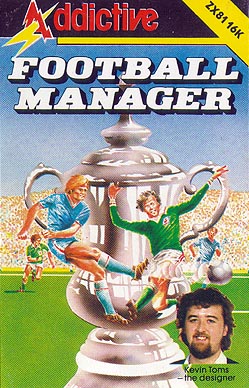
Football Manager is the first game in the Football Manager series.

Indoor Sports is a sports video game developed by DesignStar's SportTime and first published in the U.S. by Mindscape in 1987 for the Commodore 64. Indoor Sports includes simulations of bowling, darts, ping-pong, and air hockey. It was converted to the Acorn Electron, Amiga, Amstrad CPC, Apple II, Atari ST, BBC Micro, MS-DOS, and ZX Spectrum. Verisons for the Commodore 16 and Commodore Plus/4 omit Air Hockey. In Europe it was published by Databyte, Advance Software, and Tynesoft, depending on the platform.
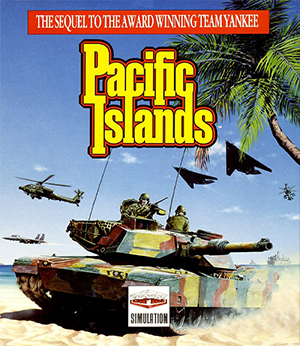
Pacific Islands is a computer game published by Empire Interactive in 1992 for the MS-DOS, Amiga and Atari ST. It is the sequel to the 1987 video game, Team Yankee.
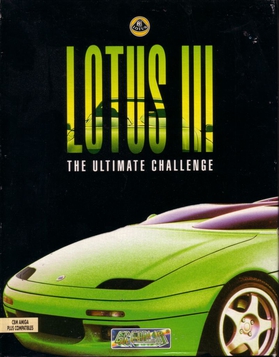
Lotus III: The Ultimate Challenge is the third and final game in the Lotus racing series.

TV Sports: Football is a 1988 video game by Cinemaware for Amiga, Atari ST, Commodore 64, DOS, and TurboGrafx-16.

Sex Vixens from Space is an erotic interactive fiction game developed and self-published by Free Spirit Software and originally released in 1988 for the Commodore 64 and Apple II as part of the compilation Sex And Violence Vol. 1. It was released as a standalone game, with the addition of graphics, in November 1988 for DOS and Amiga and in 1989 for the Atari ST. Sex Vixens was inspired by the 1974 sexploitation film Flesh Gordon. The game was panned by reviewers.

Centerfold Squares, retitled Centrefold Squares in Europe, is an erotic puzzle game originally developed and self-published by Artworx and released in 1988 for the Amiga, Atari ST and DOS. The game is a variation of Reversi where rectangular sections of an image of a nude model are revealed as the player earns points. Centrefold Squares was published by CDS Software in Europe, and published by Proein S.A under the original American title in Spain.

The Seven Gates of Jambala is a 1989 platform video game developed by Thalion Software and published by Grandslam Entertainments for the Amiga and Atari ST. An Amiga CD32 port was released in 1994. 8-bit ports for the Commodore 64, Amstrad CPC, and ZX Spectrum were cancelled.

Tangram is a 1991 puzzle video game developed and published by Thalion Software for the Amiga and Atari ST.
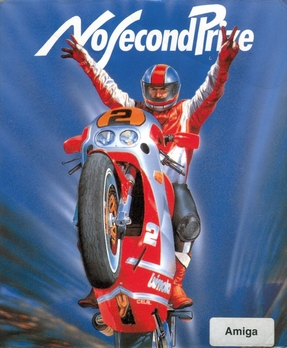
No Second Prize is a 1992 racing video game developed and published by Thalion Software for the Amiga and Atari ST.

Red Zone is a 1992 racing video game developed and published by Psygnosis for the Amiga.
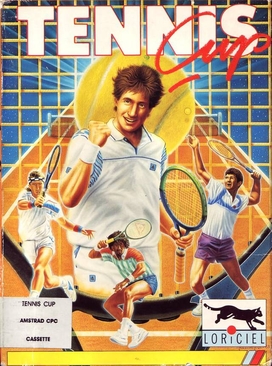
Tennis Cup is a 1990 tennis video game developed and published by Loriciel for the Amiga. It was ported to the Atari ST, MS-DOS and Amstrad CPC during the same year. Tennis Cup was ported to TurboGrafx-16 in 1991 as Davis Cup Tennis. Versions for the Super Nintendo and Mega Drive/Genesis were released in 1993.

Tie Break is a 1990 tennis video game developed and published by Starbyte Software for the Amiga. Ports for other home computers were released later. The game is known as Adidas Championship Tie Break on the ZX Spectrum.

Advantage Tennis is a 1991 tennis video game developed and published by Infogrames for the Amiga, Atari ST, and MS-DOS.



















